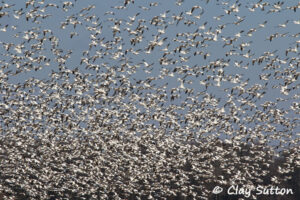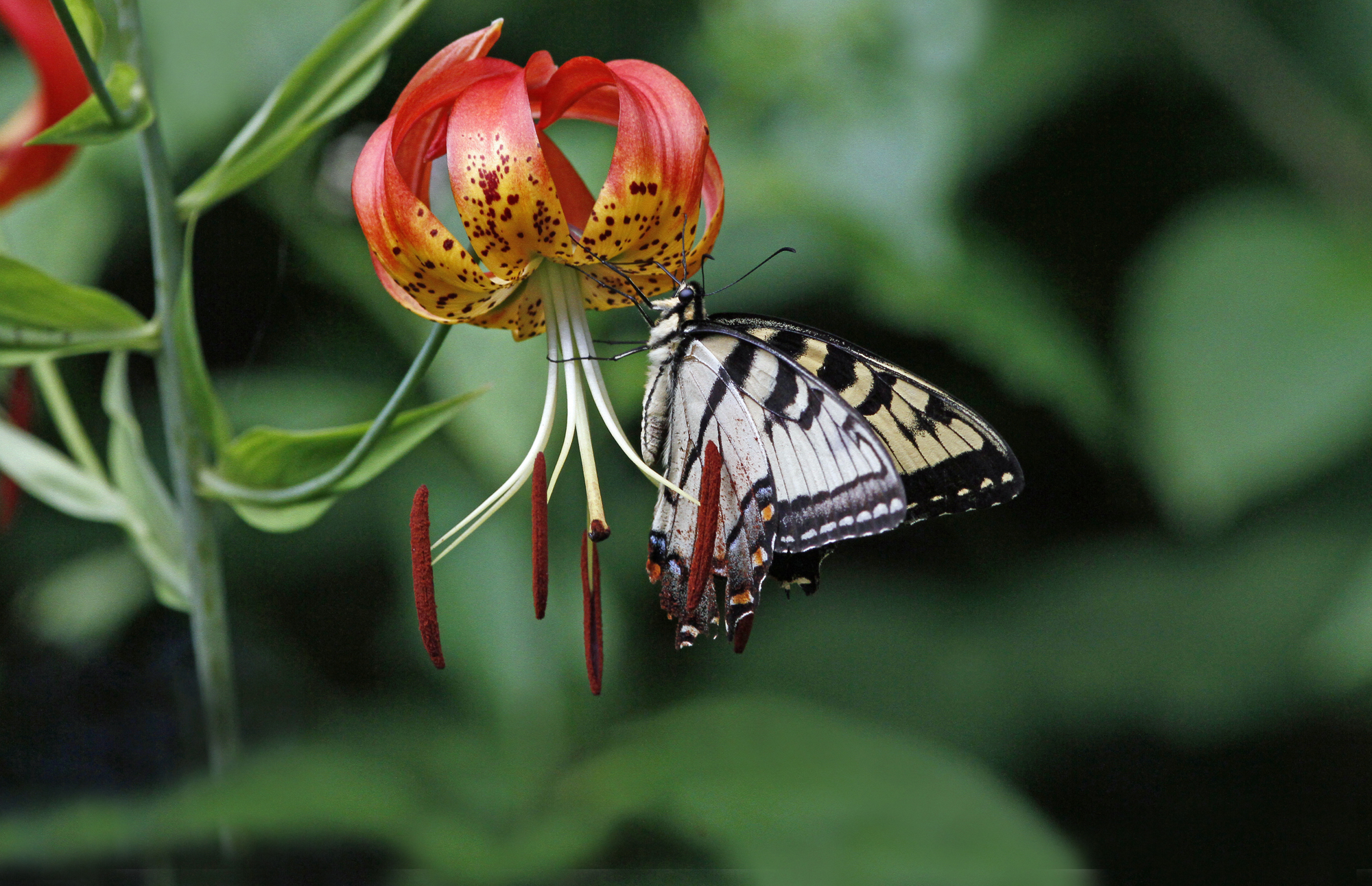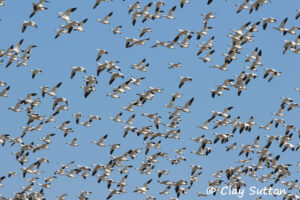Hi Gang,
This post does not involve gardening, but concerns something that I thought avid naturalists and wildlife gardeners would want to know about.
Clay and I were birding on Friday, January 17, 2025, in Cumberland County, New Jersey, east and south of the Cohansey River. We found a flock of 10,000-20,000 (truly uncountable) Snow Geese and were dazzled by them for much of the day. It had been quite a few years since we’d seen numbers like this, even though for many years we could hear the clamoring of Snow Geese from our house in Goshen, NJ, each winter as they fed in the marshes between Reeds Beach and Jakes Landing. Those concentrations haven’t happened for years now. On January 17th, this huge flock of Snow Geese near the Cohansey River also attracted a steady parade of local resident and wintering Bald Eagles. We roughly estimated 36 Bald Eagles for the day. Each eagle’s flight over the Snow Geese resulted in noisy and mind-blowing flushes which entertained us all day long.
 While scanning for other raptors and birds, we noticed a dozen or more dead Snow Geese scattered around the farm fields that held the Snow Geese. At first we thought these dead birds were maybe the result of hunters winging them, but then we feared that it could be Avian Flu, also known as Highly Pathogenic Avian Influenza (HPAI). This alarmed us because we saw numerous Bald Eagles, a Northern Harrier, and a Raven feasting on this easy prey (dead Snow Geese).
While scanning for other raptors and birds, we noticed a dozen or more dead Snow Geese scattered around the farm fields that held the Snow Geese. At first we thought these dead birds were maybe the result of hunters winging them, but then we feared that it could be Avian Flu, also known as Highly Pathogenic Avian Influenza (HPAI). This alarmed us because we saw numerous Bald Eagles, a Northern Harrier, and a Raven feasting on this easy prey (dead Snow Geese).
I called and reported the dead Snow Geese to the NJ DEP’s Endangered and Nongame Species Program and learned that a press release had gone out the same day, January 17th about HPAI and I wanted to share it with you. I learned that HPAI is very active in NJ, DE, and PA right now, affecting hundreds (or more) snow geese plus other waterfowl.
This press release
(click on underlined text to read)
about Avian Flu in NJ, also known as
Highly Pathogenic Avian Influenza (HPAI),
just went out Friday
and asks anyone who finds
dead or sick waterfowl or raptors
to report their findings to the NJ DEP hotline at
877-WARN-DEP (877-927-6337)
All cases are being investigated, but at times it is not possible to collect all carcasses. With good reason, the Endangered and Nongame Species Program is very concerned about NJ’s Bald Eagle population and will do what they can to limit their exposure, but dead and sick geese are magnets for eagles. The die-off Clay and I discovered is one of several. As of January 21, other known outbreaks are in Mannington (Salem County) and in Warren / Hunterdon counties.
If you should find a sick or dead waterfowl or raptor in the wild and need to move it away from your home or some other area, review information from the Centers for Disease Control and Prevention (CDC) for specific groups and take additional precautions, including wearing personal protective equipment (PPE).
If you live in one of the surrounding states that is finding HPAI, look for information in your state for where to report similar findings (dead or sick waterfowl or raptors). Here is an excellent news release by Maryland’s Department of Natural Resources about their efforts (this news release was also posted on January 17th). The Maryland news release addresses a question about bird feeding that many of us might have right now:
- Anyone who fills bird feeders for the winter should feel free to do so, as songbirds carry a very low risk of getting or spreading the virus. (That said, I would add that it is very important to keep feeders and water sources clean!)
Please do not send questions about HPAI to me. I am not an expert. I am just trying to inform folks who, like me, explore and enjoy the natural world and might be in a position to find dead or sick waterfowl or raptors. Read the news releases I’ve shared and follow all the links in each news release to educate yourself.
Thank you for caring! Stay Warm!
Pat

